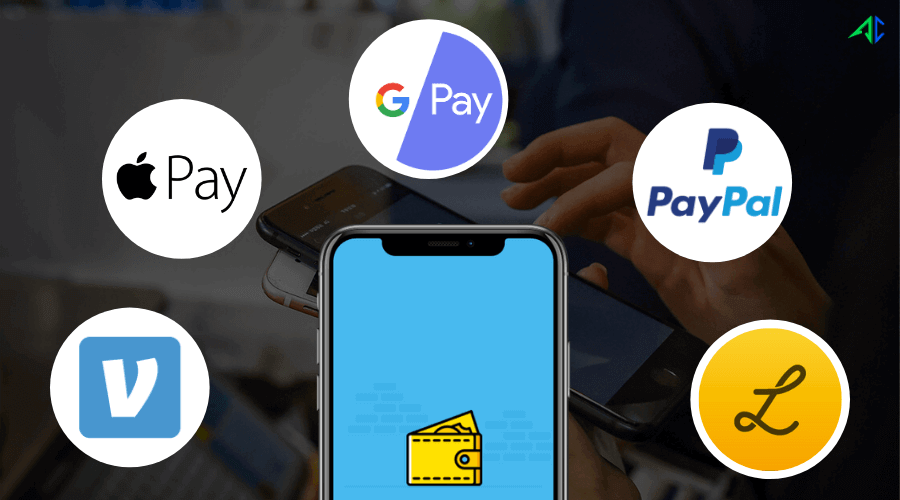What are Digital Wallets? Your Ultimate Guide to Digital Payment Platforms
A 2021 research shows 43.2 percent of smartphone users used their devices to make payments with the number projected to reach 50 percent by 2025. This is the trend in the current digital era as more and more people shift to using their smartphones to make payments. This is because of the convenience and security that digital wallets offer. In this article, we will discuss what digital wallets are, how they work, the different types of digital wallets available, and the advantages and disadvantages of using them.
What are Digital Wallets?
Digital wallets are software programs that securely stores user’s payment information, such us credit or debit card details, bank account numbers and other personal financial data. It allows users to make payments online or through mobile devices without having to manually enter their sensitive information each time they purchase something.
These online payment tools are usually accompanied by a mobile app and they store virtual versions of debit and credit cards. This way, users don’t need to carry their physical cards or remember their card details to make payments.
How do Digital Wallets Work?
Digital wallets work by storing the user’s payment information in an encrypted format. When making a purchase, the user simply selects the digital wallet option on the website or app and enters their login credentials (such as username and password). The digital wallet then sends a secure request to the merchant with all of the necessary payment details. The merchant then receives the request and processes it using its own dedicated server.
Digital wallets use software to connect your payment details from the connected bank account to the store or vendor where you are making the transaction. These wallets allow different levels of access – open wallets are accepted by most retailers and they enable online transactions, cashback transactions, and contactless in-store payments.
On the other hand, semi-closed and closed digital wallets only permit transactions to certain groups of retailers. Some wallets only allow transactions with the issuing retailer.
In addition to storing user’s payment details, digital wallets also store digital versions of other documents like gift cards, membership cards, loyalty cards, coupons, event tickets, plane and transit tickets, hotel reservations, driver’s license, identification cards, and car keys just to name a few.
Digital wallets and mobile devices are powered by different technologies including:
- QR codes – Formally called Quick response codes, QT codes are matrix bars that carry information. To use QR codes, one uses the camera on their mobile and the wallet’s scanning system in order to initiate the payment.
- Near Field Communication (NFC) – NFC is a set of standards that enable wireless communication between two devices within a short-range. This technology allows people to conduct payments by simply tapping their device with another mobile device or payment terminal.
- Bluetooth Low Energy (BLE) – BLE is similar to NFC but it uses radio waves instead of electromagnetic fields. It facilitates communication and data transfer between two devices over short distances.
- Magnetic secure transmission (MST) – This technology is used to make magnetic stripe payments. Magnetic secure transmission is the same technology used in magnetic card readers that read the user’s information when the card is swiped at a point of sale. The phone generates an encrypted field that can be read by the point of sale.
What are the Different Types of Digital Wallets?
There are several different types of digital wallets, which include mobile wallets, web-based wallets, and desktop wallets.
- Mobile wallets – these allow users to store their payment information on their smartphone or other device and make secure payments from anywhere in the world. Examples of mobile wallet services include Apple Pay, Google Pay, and Samsung Pay.
- Web-based wallets – they provide users with a secure online platform for making payments. These services typically require you to sign up for an account with them before you can start using them. Examples of web-based digital wallet services are PayPal, Venmo, and Skrill.
- Desktop wallets – these are apps that allow users to store their payment information on their computers and make payments directly from their desktops. Examples of desktop wallets are Electrum, Exodus, and Trezor.
Are digital wallets safe?
Yes, digital wallets are generally safe and secure to use. They use encryption and two-factor authentication to keep your payment information and financial data secure. Additionally, digital wallets require you to enter a PIN or password before any payments can be made. This extra layer of security makes it more difficult for hackers to access your account.
That said, you need to be careful and vigilant when using digital wallets. Keep your passwords in a secure place and watch for any suspicious activities on your account.
Best Digital Wallets
More and more consumers are transitioning to digital wallets mainly driven by the convenience factor. There are currently many digital wallets you can choose from although a consumer’s choice of the app may boil down to the type of mobile device they are using. Below are the best digital wallets you can use;
Apple Pay
Apple Pay is arguably the most popular digital wallet service. It can be used for payments both online and in stores using your iPhone, iPad, or Apple Watch. This wallet allows users a safe and contactless way to make payments through iPadOS, iOS, and watchOS apps.
Users can add Apple Cash and any other debit or credit card into their Apple Pay wallets from where they complete transactions. Apple Pay uses a passcode set on the device to verify payments made. The wallet can also use the user’s fingerprints or face ID for verification.
Google Wallet
Google Wallet is Google’s answer to Apple Pay. This wallet allows users to store their debit and credit cards in addition to their bank account details.
The wallet can be accessed through the Google Play Store on your Android device. Users can also add loyalty cards and gift cards they may have to their wallets for easy retrieval whenever they need them. Verification of payments made using the wallet is done through a PIN or fingerprint scan depending on what type of phone you are using.
Samsung Wallet
Samsung Wallet is a digital wallet service that works on Samsung devices specifically. This means it can only be used with Samsung smartphones, wearables, and tablets. Users need to have the Samsung Pay app installed on their device in order to use it.
The wallet allows you to securely store your payment cards as well as loyalty cards. All payments are verified by a PIN or fingerprint scan and all information stored in the app is encrypted for added security.
PayPal
PayPal is one of the most popular digital wallet services, allowing users to securely store their payment information and make payments online. Payments can be made through.
PayPal’s website or app. Users need to create an account with them in order to access their features and start sending and receiving money.
The wallet also offers several security features such as two-factor authentication, encryption, and fraud protection. All payments made using PayPal are verified by a PIN or fingerprint scan for added security.
Venmo
Venmo is a digital wallet service focused on peer-to-peer payments. It allows users to securely send and receive money from their contacts or groups of contacts. The wallet works with bank accounts, debit cards, and credit cards.
Verification for payments made using Venmo is done through a PIN or biometric authentication depending on the device being used. All information stored in the app is encrypted for extra safety.
CashApp
CashApp is another digital wallet service that allows users to securely store their payment information and make payments online. Payments can be made through the CashApp website or app.
The wallet also offers several security features such as two-factor authentication and encryption. All payments made using CashApp are verified by a PIN or fingerprint scan for added security.
Advantages of Digital Wallets
Convenience
One of the biggest advantages of using digital wallets is that they make payments more convenient than ever before. You don’t have to keep track of multiple credit cards or worry about carrying cash around with you.
Security
Digital wallets are more secure than traditional methods of payment. They use the latest encryption technology to protect your information and require you to verify payments with a PIN or fingerprint scan before they can be completed.
Speed
It is much faster to make payments using digital wallets than it is to pay with cash or credit cards. Payments made through digital wallets are almost instantaneous, allowing you to make quick transactions without having to wait in line at the checkout counter.
Disadvantages of Digital Wallets
Limited Availability
One of the biggest disadvantages of using digital wallets is that not all stores accept them as forms of payment yet. This means that you may need to carry an alternate form of payment in case the store you are shopping at doesn’t accept digital wallets.
Complex Setup
Setting up and using a digital wallet can be quite complex for some people, especially those who aren’t tech savvy. You need to have the right device and app installed in order to use a digital wallet and this can be difficult for some people.
Security Risks
Although digital wallets are more secure than traditional methods of payment, there is still a risk that hackers could gain access to your account if you don’t take the necessary precautions. This includes using strong passwords and watching out for suspicious activities on your account such as unusual transactions or login attempts from unknown locations.
Conclusion
Digital wallets are an increasingly popular form of payment that offer convenience, speed, and security to users. While there are some potential disadvantages to using digital wallets, they are still a great way to make payments quickly and securely. With more and more stores accepting digital wallets as forms of payment, it is likely that their popularity will continue to grow in the future.
With so many digital wallets to choose from, it can be hard to decide which one is the best for your needs. We recommend researching the different wallets available and reading customer reviews of them before making a decision. This will help ensure that you find the perfect digital wallet for you!



